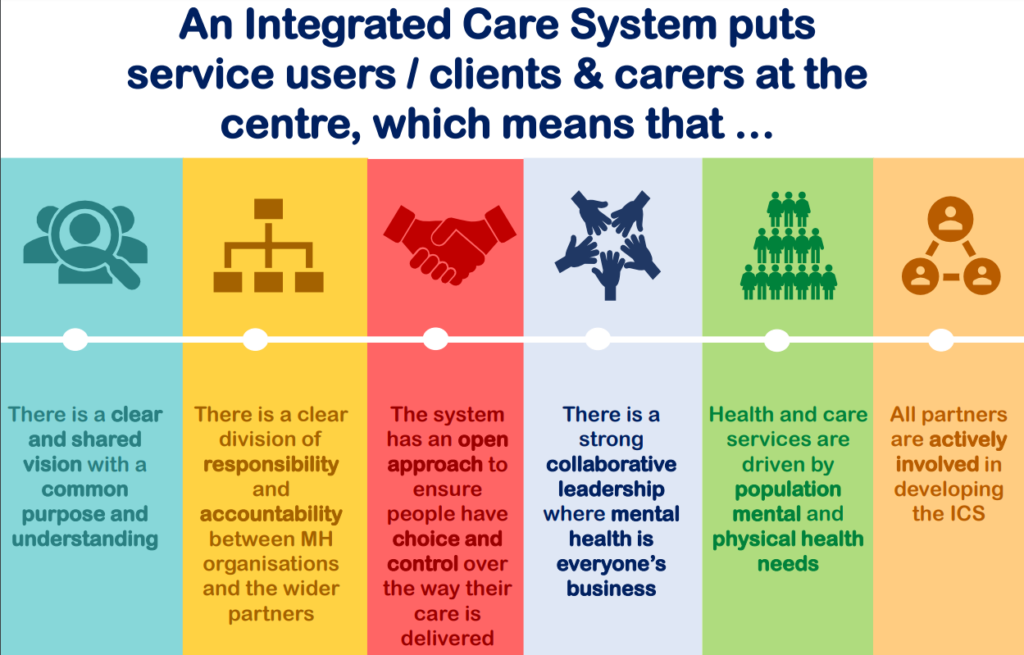
Breaking the Silence: Revolutionizing Mental Health Care

Mental Health Care is an integral part of our overall well-being, yet it is a topic that has often been shrouded in silence and stigma. Far too many individuals have suffered silently, afraid to seek help or share their struggles, while society has often overlooked the importance of mental well-being. However, times are changing, and a revolution in mental health care is underway.
Today, we are witnessing a shift in attitudes and a growing recognition of the significance of mental health. People are beginning to grasp that mental health is not something to be ignored or brushed aside, but rather a crucial aspect of our overall health and happiness. As a result, there is a pressing need to transform mental health care and ensure that it is accessible, effective, and destigmatized.
One of the key aspects of this revolution is increasing awareness and understanding. Educating ourselves and others about mental health conditions, their prevalence, and their impact is essential in breaking down the barriers that prevent individuals from seeking the care they need. By fostering open conversations and promoting empathy, we can create a supportive environment where individuals feel safe and encouraged to speak up about their mental health challenges.
Additionally, we must address the systemic issues that have plagued mental health care for far too long. Limited access to services, high costs, and long waiting periods are just a few of the barriers that prevent individuals from receiving timely and effective care. Breaking the silence means advocating for policy changes, increased funding, and innovative approaches that prioritize mental health and ensure it receives the attention it deserves.
The revolution in mental health care also involves a shift in mindset. We are moving away from a reactive approach to mental health, where interventions occur after a crisis, towards a proactive and preventive model. Early intervention, comprehensive mental health assessments, and ongoing support are vital in identifying and addressing mental health concerns before they escalate. By treating mental health with the same importance as physical health, we can foster a society that prioritizes well-being and proactively supports individuals.
Breaking the silence surrounding mental health care is not a solitary effort but a collective endeavor. It requires the involvement of individuals, communities, healthcare professionals, and policymakers working together to create a more inclusive and supportive environment. By embracing this revolution, we can truly revolutionize mental health care and pave the way for a brighter future where everyone has the opportunity to thrive.
Overcoming Stigma: Changing the Narrative
Mental Health Care is an essential aspect of overall well-being, yet for far too long it has been shrouded in stigma and misunderstanding. The negative perceptions surrounding mental health have contributed to a culture of silence and shame, preventing individuals from seeking the support they need. However, a significant shift is occurring as we strive to change the narrative around mental health care.
One of the key factors in overcoming stigma is education. By disseminating accurate information and dispelling misconceptions, we can challenge the stereotypes associated with mental health. This includes highlighting that mental health conditions are not a sign of weakness or personal failure, but rather valid medical conditions that require compassion and treatment. Through awareness campaigns, community discussions, and inclusive education initiatives, we can empower individuals to feel comfortable seeking help for their mental well-being.
Furthermore, fostering open conversations about mental health is crucial to breaking down barriers. We must create safe spaces in which individuals feel supported and encouraged to share their experiences. By sharing personal stories and perspectives, we can inspire empathy and understanding among others, while also normalizing the conversation around mental health care. Through peer support groups, online platforms, and community events, we can create a sense of belonging and unity, encouraging individuals to reach out for assistance without fear of judgment or isolation.
Institutional changes also play a pivotal role in reducing stigma and transforming mental health care. It is essential to advocate for policies that prioritize mental health support and resources. By integrating mental health services into primary care settings, schools, and workplaces, we can ensure accessibility and affordability for all individuals. Additionally, investing in mental health research and treatment innovations will contribute to breaking the silence surrounding mental health care.
By actively working to overcome stigma, we can revolutionize the way mental health care is perceived and accessed. Through education, open conversations, and institutional changes, we have the power to create a society that values and supports mental well-being. It is time to break the silence and build a future where mental health care is prioritized, understood, and accessible to all.
Innovative Approaches: Technology in Mental Health Care
Technology has played a pivotal role in transforming the landscape of mental health care. With the advent of innovative approaches, individuals now have greater access to resources and support that can significantly improve their well-being. In this section, we will explore the intersection of technology and mental health care, highlighting the positive impact it has made in addressing the needs of individuals seeking help.
-
Improved Accessibility: Technology has broken down barriers by providing individuals with easily accessible mental health care resources. Online platforms and mobile applications offer a wide range of tools, such as therapy apps, mindfulness exercises, and virtual support communities. These digital platforms enable individuals to seek guidance and connect with professionals from the comfort of their own homes, eliminating geographical limitations and reducing the stigma often associated with seeking help.
-
Remote Therapy: The introduction of teletherapy has transformed the way mental health professionals deliver therapy. This approach allows individuals to connect with therapists through video calls, providing a convenient alternative to traditional in-person sessions. Remote therapy has proven to be particularly beneficial for those who live in remote areas or have difficulty attending appointments due to physical or psychological constraints. Furthermore, it has become a lifeline during times of crisis, ensuring continuity of care regardless of external circumstances.
-
Screening and Early Intervention: Technology has also revolutionized the process of mental health screening and early intervention. Mobile applications and online platforms offer user-friendly assessment tools that can detect early warning signs of mental health issues. These tools enable individuals to track their own mental well-being and seek appropriate support when necessary. By detecting problems earlier, technology allows for early intervention, which can help prevent the development of more serious mental health conditions.
In conclusion, technology has ushered in a new era in mental health care, offering innovative approaches that improve accessibility, enable remote therapy, and facilitate early intervention. These advancements have the potential to revolutionize the way we approach mental health care, breaking the silence and ensuring that individuals receive the support they need to lead healthier and happier lives.
Addressing Access and Equity: Closing the Gap
A significant challenge in mental health care is the lack of access and the resulting inequity in receiving appropriate treatment. Many individuals in need of mental health support face barriers that prevent them from accessing the care they require. To revolutionize mental health care, it is crucial to address these issues and close the existing gap.
One key aspect to consider is the availability of mental health services in underserved areas. Rural communities, for example, often have limited access to mental health professionals and resources. This lack of proximity can lead to significant hurdles in receiving timely and adequate care. To close this gap, it is essential to develop strategies that prioritize the provision of mental health services in these underserved regions. This includes initiatives such as telehealth programs and mobile clinics, ensuring that mental health support reaches even the most remote communities.
Another vital component in addressing access and equity is the affordability of mental health care services. Many individuals may be unable to afford the high costs associated with therapy sessions, medication, or other forms of treatment. This financial strain becomes a significant barrier, preventing them from seeking the help they need. To close this gap, it is crucial to introduce policies that promote affordability, such as increased insurance coverage for mental health services and subsidies for those unable to afford treatment. By making mental health care more financially accessible, we can ensure that everyone has an equal opportunity to receive the support they require.
Finally, cultural and linguistic differences can further contribute to the access and equity gap in mental health care. These differences can create barriers to effective communication and understanding between mental health professionals and patients, leading to inadequate or misdiagnosed treatment. Addressing this requires implementing programs that focus on cultural competence training within the mental health care system. By ensuring that mental health professionals are equipped with the necessary skills and awareness, we can bridge the gap and provide culturally sensitive care to all individuals regardless of their background.
In conclusion, to truly revolutionize mental health care, we must address the barriers to access and equity. By prioritizing the availability of mental health services in underserved areas, promoting affordability, and fostering cultural competence, we can take significant strides towards closing the gap and ensuring that all individuals receive the care they deserve.



